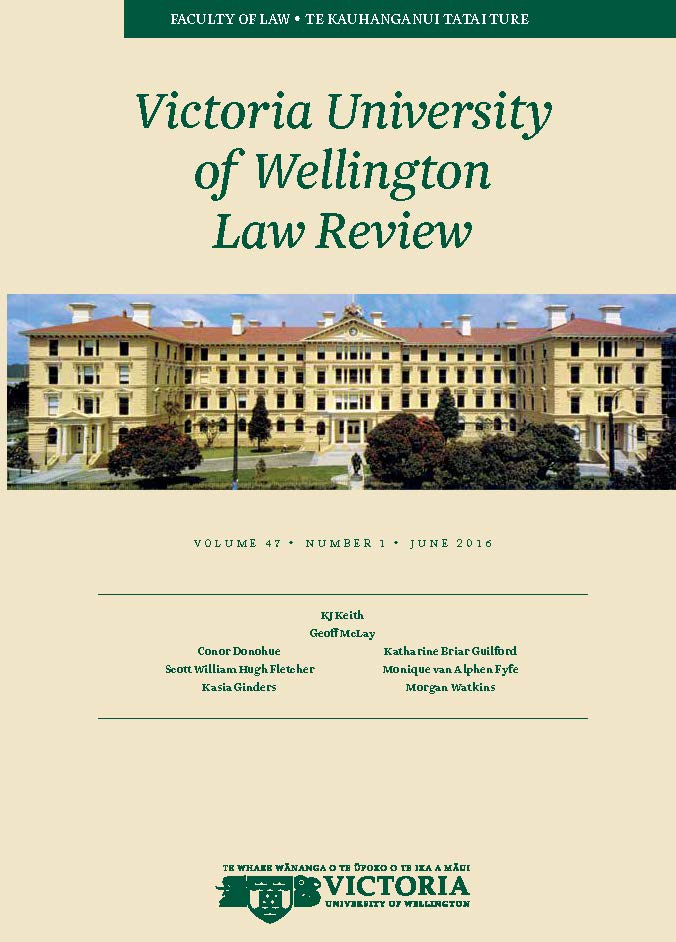Countering Foreign Terrorist Fighters: Warrantless Surveillance Powers of the New Zealand Security Intelligence Service
DOI:
https://doi.org/10.26686/vuwlr.v47i1.4880Abstract
On 9 December 2014, the New Zealand Security Intelligence Service Amendment Act 2014 amended the New Zealand Security Intelligence Service Act 1969 by removing the requirement for an intelligence or visual surveillance warrant in some situations of emergency or urgency. The warrant process is the primary mechanism for the purpose of ensuring surveillance powers are not exercised arbitrarily or unreasonably. Any departure from this process must be justified, limited and proportionate. After a brief look at the history of the Bill, this article will then consider the circumstances in which a warrantless authorisation shall be granted and information retained, with reference to the trigger concepts of "terrorist act", "foreign terrorist fighter" and "security". Amendments proposed include limiting the grounds for warrantless surveillance and information retention to countering "foreign terrorist fighters". It will then discuss the consistency of the Bill with the New Zealand Bill of Rights Act 1990, focusing on the authorisation structure and length. It will put forward a proposed amendment that restructures the power such that authorisation for surveillance in urgency will be provided by the Minister and Commissioner within 12 hours.
Downloads
Downloads
Published
How to Cite
Issue
Section
License
Authors retain copyright in their work published in the Victoria University of Wellington Law Review.


